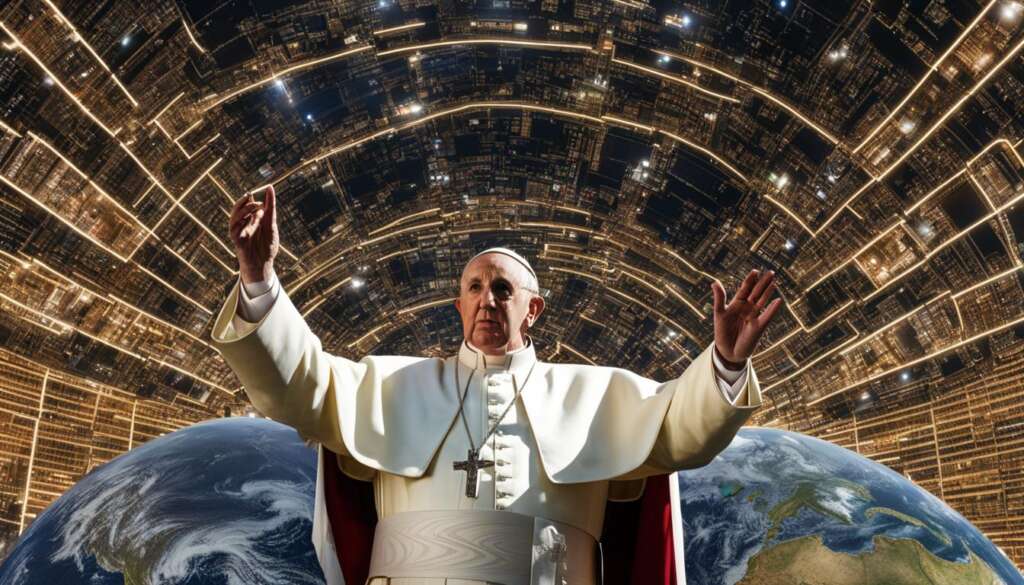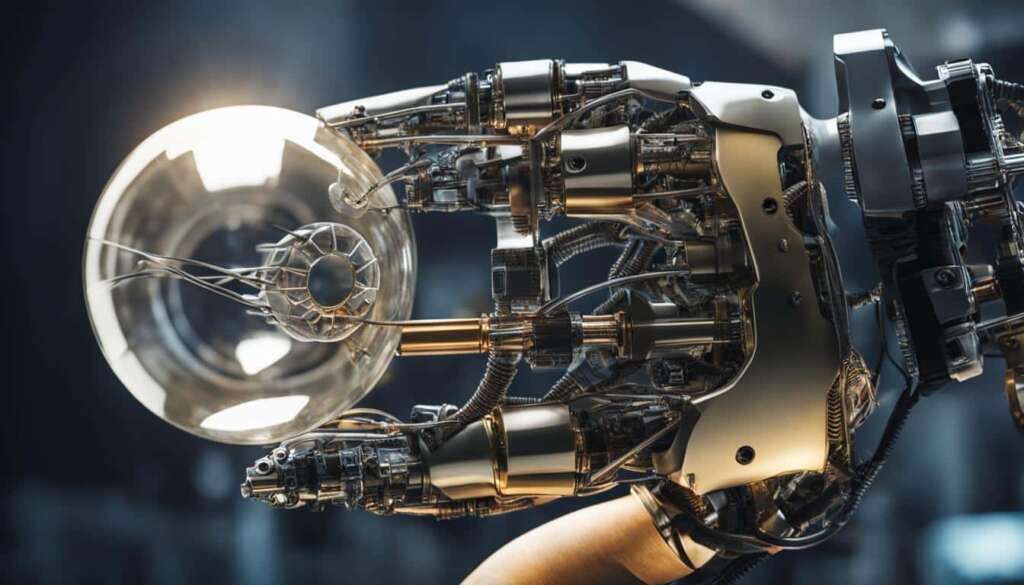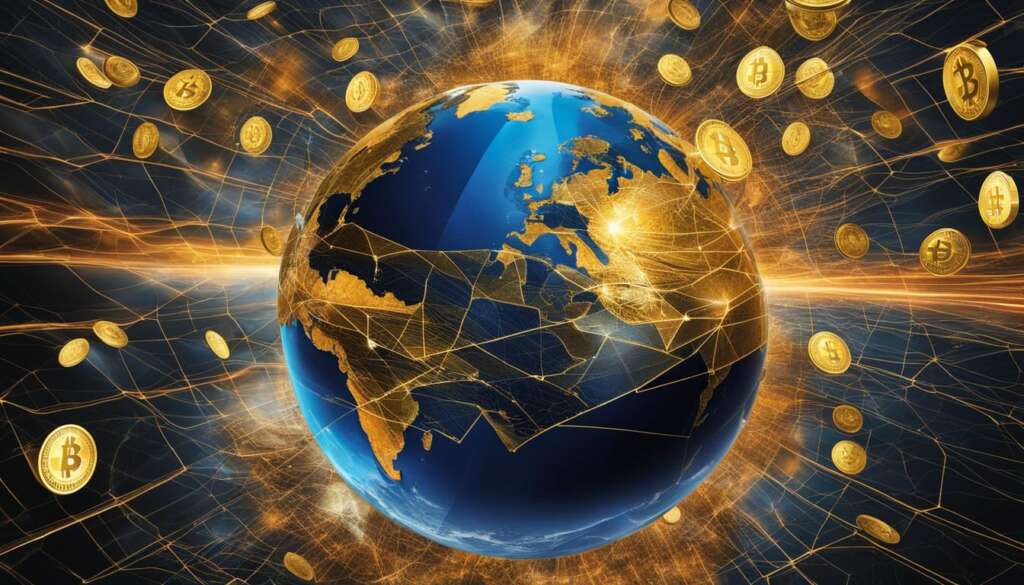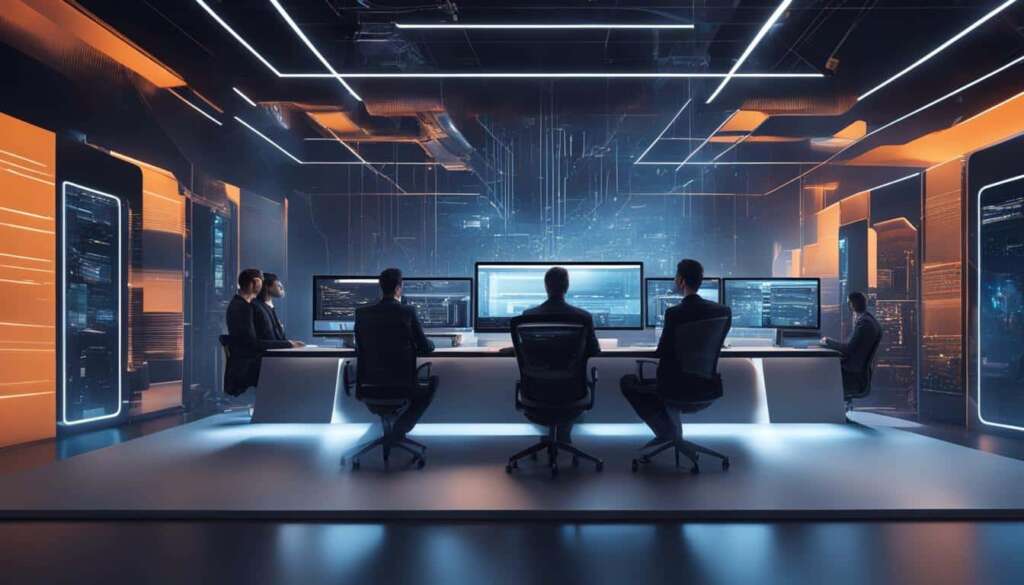Table of Contents
Pope Francis has called for a legally binding international treaty to regulate artificial intelligence (AI). In his message for the Roman Catholic Church’s World Day of Peace, titled “Artificial Intelligence and Peace,” the pope emphasized the need for global cooperation in adopting a binding international treaty that governs the development and use of AI.
He expressed concerns about the potential threat of a technological dictatorship and called for ethical scrutiny of AI’s owners and developers, particularly in the context of AI weapons systems. The European Union has recently reached a provisional deal on landmark rules for AI regulation, highlighting the growing global awareness of the need for AI governance.
Continue reading to learn more about the importance of ethical AI use, the risks, and concerns associated with AI technology, and the need for global AI governance.
The Importance of Ethical AI Use
Pope Francis has been a vocal advocate for the regulation of AI technology and has called for global AI guidelines. In his message for the Roman Catholic Church’s World Day of Peace, the Pope emphasized the need for ethical scrutiny in the development and use of AI. While recognizing that technology can enhance our quality of life, he cautioned against the risky applications of AI that could exacerbate inequality and conflict.
The Pope affirmed the importance of human involvement in making moral and ethical decisions, highlighting the need to avoid relying solely on machines. He emphasized that the responsible development and use of AI should be guided by fundamental human values, such as inclusion, transparency, security, equity, privacy, and reliability.
The responsibility to build AI safely falls on sovereign states and international organizations. Pope Francis called for their collaboration in enacting a binding international treaty that regulates the development and use of AI. This treaty would help ensure that AI technology aligns with ethical standards and respects human dignity.
| Ethical Principles | Explanation |
|---|---|
| Inclusion | Ensuring that AI benefits all individuals and does not discriminate against any social or demographic group. |
| Transparency | Providing clear information about how AI systems make decisions and operate. |
| Security | Safeguarding AI systems from manipulation, cyberattacks, and unauthorized access. |
| Equity | Promoting fairness in the distribution of AI resources and opportunities. |
| Privacy | Respecting individuals’ personal information and ensuring AI systems do not infringe on their privacy rights. |
| Reliability | Ensuring that AI systems are accurate, reliable, and accountable for their actions. |
By adhering to these ethical principles, AI governance can help mitigate the risks associated with AI. Pope Francis’s call for a global AI treaty reflects the pressing need for comprehensive and internationally coordinated efforts to regulate AI technology and ensure its responsible development and use.
Risks and Concerns of AI
Pope Francis addressed the broad risks and concerns associated with AI in his message. He cautioned that AI should not be presumed to automatically make a beneficial contribution to humanity and peace among nations. The pope recognized that AI can only imitate certain functions of human intelligence and warned against relying on AI to make judgments that impact people’s livelihoods and human rights.
He raised concerns about biased algorithms that could perpetuate inequalities in employment, criminal justice, and social benefits. Additionally, Pope Francis highlighted the dangers of military development of autonomous weapons, emphasizing that the technology should not fall into the wrong hands and endanger innocent citizens and democracies.
“AI should not be presumed to automatically make a beneficial contribution to humanity and peace among nations.”
The risks associated with AI are substantial. From biased algorithms reinforcing societal inequalities to the development of autonomous weapons, there is a pressing need for comprehensive regulation and governance of AI technology. Pope Francis’s call for an international treaty focused on AI regulation reflects the urgent need for ethical considerations and responsible use of AI in order to protect individuals and communities.
Risks and Concerns of AI
| Concerns | Potential Impact |
|---|---|
| Biased algorithms | Perpetuation of inequalities in employment, criminal justice, and social benefits |
| Military development of autonomous weapons | Endangerment of innocent citizens and democracies |
As AI technology continues to evolve, it is essential to address these risks and concerns through effective regulation and governance. By establishing an international treaty, governments and organizations can work together to ensure the responsible development and use of AI, safeguarding the rights, security, and dignity of individuals and communities around the world.
The Need for Global AI Governance
Pope Francis has recognized the need for global governance of artificial intelligence (AI) and has called for an international treaty to regulate its development and use. The pope’s emphasis on the importance of AI governance stems from his concern about the potential risks and ethical implications associated with the technology.
In his call for a binding international treaty, Pope Francis highlights the need to base AI governance on fundamental human values. He emphasizes the ethical and responsible use of AI, urging nations to prioritize the well-being and dignity of individuals in AI development and deployment.
The pope’s stance reflects the growing recognition of the need for AI regulation and the ethical considerations surrounding the technology. International cooperation is crucial in order to mitigate the potential harms of AI, ensure its equitable deployment, and address the complex challenges that arise from its use across borders.
By urging the global community of nations to adopt a binding international treaty for AI regulation, Pope Francis underscores the importance of collaboration and collective responsibility in shaping a future where AI serves humanity’s best interests and upholds universal values.
FAQ
What did Pope Francis call for in his message on AI and peace?
Pope Francis called for a legally binding international treaty to regulate artificial intelligence (AI) and ensure its responsible development and use.
What are the concerns raised by Pope Francis regarding AI?
Pope Francis expressed concerns about the potential threat of a technological dictatorship, the reliance on machines to make moral and ethical decisions, and the dangers of biased algorithms and the development of autonomous weapons.
What values does Pope Francis emphasize in the development and use of AI?
Pope Francis highlights fundamental human values such as inclusion, transparency, security, equity, privacy, and reliability as essential in the responsible development and use of AI.
Why is global governance of AI important according to Pope Francis?
Pope Francis emphasizes the need for global governance of AI to mitigate potential harms, ensure equitable deployment, and prioritize ethical considerations associated with AI technologies. He calls for a binding international treaty to regulate AI.













